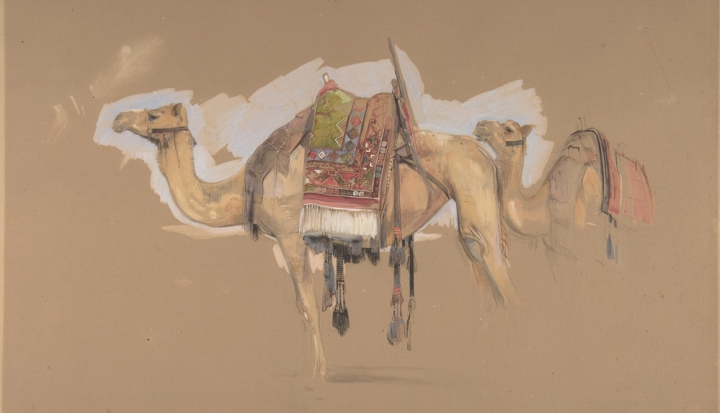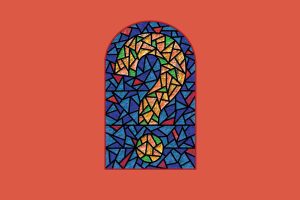Recently I arranged for a local charity to come pick up eight boxes of household items I was no longer using. The pile, stacked heavily on the porch, was taller than I am. It included coats and shoes, duffel bags and backpacks, kitchenware, wall art, desktop items, and assorted tchotchkes. Plus a huge leatherbound Bible. I looked at the towering stack, pondered its meaning, and went back inside. Eight boxes. Of things I’d had no use for in years.
Giving away a half dozen coats and jackets, I need not fear being cold. I have at least as many more still tucked in a closet. My kitchen is still full service, and my desktop is as cluttered as ever. And don’t cry for me about the departure of the Bible. I have six more with which to continue writing this column.
Back inside the apartment, I faced another stack of boxes. These are filled with books I’ve read and some I’ve finally accepted I will never crack the binding of. Yes, I did want to complete an exploration of William Faulkner’s novels, started way back in my days as an English major. But it’s been 40 years since the great books were part of my regular diet. I’m not going to be that ivory tower egghead I dreamed of being in my youth. I’m not going to hobnob with the elite in salons drinking from Waterford crystal while debating the merits of a well-placed semicolon—which I truly believe there are. Along with tangible items from closets and shelves, I realize I’m also giving away versions of myself and my future that I’ve outgrown or abandoned.
In cities past I’ve left behind a guitar I never learned to play, a box of cloth remnants from which I’d imagined I’d make a quilt, a pressure cooker for the canning I was hoping to do. I’ve surrendered camping equipment, foreign language tapes (tapes!), and art supplies. The truth is I’m 60; time is running out on the potential for reinvention. Each decade of life demands certain compromises, an acknowledgment of limitations, a renegotiation of what the future might reasonably hold.
The boxes represent all of that. They are farewells to what might have been and clear-eyed reminders of roads not taken. I can cheerfully, painlessly relinquish the clothing of a younger woman I once was. She was more willing than I to suffer the elements for the sake of a “look,” while I prefer climate-appropriate comfort and ease of movement. She had smoother skin and shinier hair. I’m healthier, more fit, a little wiser, and a lot happier.
So the clothes, the jewelry, the carefully curated image, all can go and good riddance. But the books—ah, I suffer the departure of the books. I wanted to learn so much more than the time allotted for mortality will accommodate. Volumes about Lincoln, chimpanzees raised with humans, Holocaust survivors and science fiction dystopias and fallen bishops and jaw-dropping saints and towns that died silently across the United States.
The titles of the surrendered books are like an archaeological dig through an alternative education I might have enjoyed. I still desperately want to learn more about the Great Fire of Rome and Caterina Sforza, who stood up against the Borgia papacy. I long to read every word Marilynne Robinson ever wrote—and to know if there are any words she hasn’t yet dared to put to paper. Ron Hansen’s short stories await, and Rilke’s devastating verses. Will there be time for Rilke? How much more time will there be for poetry’s swift and sweet annihilation of life’s dangerous delusions?
I love the life I’ve had, the authors I’ve read, the journeys I’ve been privileged to take, the friendships I’ve been offered so far. Time and space used to feel expansive, an empire of experiences waiting to be engaged. I once believed there would be time and space enough for every longing under heaven to be fulfilled. That, at least, is one dangerous delusion I no longer harbor. Mortality is a surprisingly small room, and if we fill it up with garbage there won’t be space enough for the good stuff. We have to be spare, selective, and cautious about the hours we choose to waste on anything that doesn’t expand the heart, challenge the ego, and detonate the mindset.
So here’s the issue: that camel Jesus noted we’re all trying to force through a needle’s eye. It can’t be done, of course. We drag it forward by the reins, pull on its bristled neck, push its hind quarters, but the camel simply can’t pass through the aperture it faces. Eventually the weary animal folds up its legs and sits down, refusing to submit to our ludicrous demands. Yet we persist.
Our age is deeply distracted. Entertainments lure us, media beeps at us from every device, news feeds crawl with dire predictions, and global events declare hourly, ominously, that we need to put down whatever we’re doing and pay attention to the present crisis. Meanwhile our work must be done, our families need us, our marriages require deeper investment, friends would like a little of our attention. Physical stuff—the maintenance of homes and cars, wardrobes and laundry, grocery shopping and meal preparation and meal consumption—all takes time, drains our focus, and may even rob us of the last remnants of our energy. And maybe a few of us would just like to sit down for a few uninterrupted moments and read Richard Rohr. In such an environment, is 30 seconds of contemplative prayer enough? Is it too much to ask?
We’re dragging this camel of the contemporary lifestyle toward that tiny opening, the narrow gate, the window of mystical union with our God, and it’s just not working. Walk around one room of your home and note every item you haven’t touched in a year. Why is it there? Are you going to be able to toss it through the needle’s eye? Is it worth the effort? Consider every mouse click that fools you into thinking you’re going to see or learn or buy something vital to your happiness. How many times will we permit ourselves this deception?
Lately I’ve pushed a dozen or so boxes of inessential items out the door, things I will no longer wash or iron or take to the dry cleaners. Things I won’t have to dust or move from this storage bin to that. Things I won’t have to waste time looking at and wondering why I even own them. But it’s a miniscule start. The more significant task is the interior one: What is this life for? Who have I become so far, and who do I still hope to be? How do I get from here to her? Which activities have become obstacles to my deepest desires? On what do I long to spend my love, attention, and time?
So very little will pass through that needle’s eye with us. As St. Paul puts it, only faith, hope, and love go along for the whole journey. I still imagine I’ll read Rilke aloud and walk a few more miles with Marilynne Robinson. Maybe the tiny jewels of beautiful words and precious visions will slip through that slender needle with me. Until then, I’m putting my camel on a diet.
This article also appears in the October 2018 issue of U.S. Catholic (Vol. 83, No. 10, pages 43–44).
Image: John Frederick Lewis, ca. 1843, The Metropolitan Museum of Art














Add comment